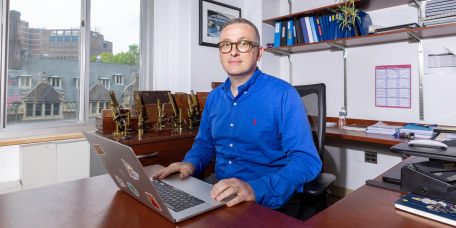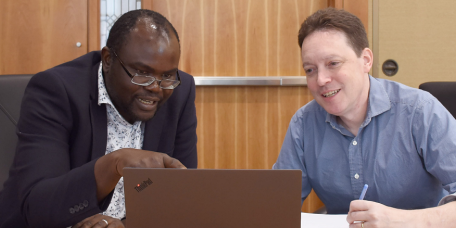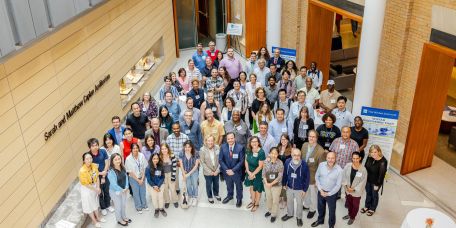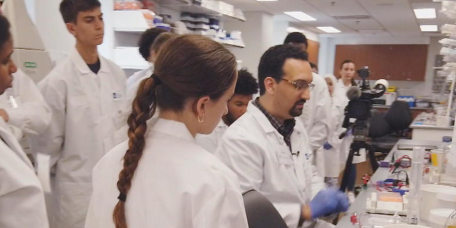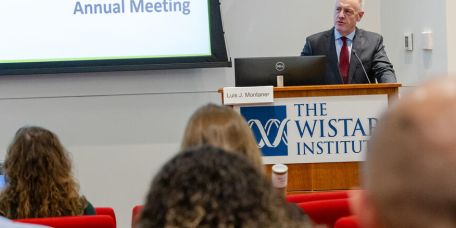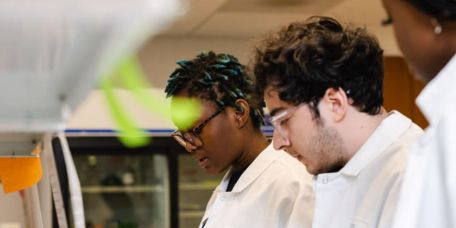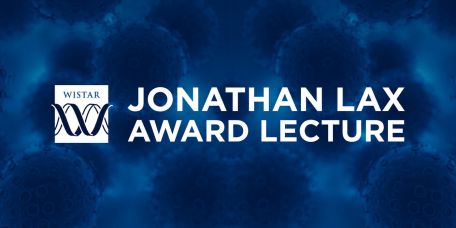The Wistar Institute
Wistar Researchers Discover Potential Target for Gastric Cancers Associated with Epstein-Barr Virus
PHILADELPHIA—(August 22, 2023)—Now, scientists at The Wistar Institute have discovered a potential target for gastric cancers associated with Epstein-Barr Virus; study results were published in the journal mBio. In the paper, Wistar’s Tempera lab in…
The Wistar Institute Recruits Virology Expert Alexander Price, Ph.D., to Cancer Center
PHILADELPHIA—(August 9, 2023)— The Wistar Institute, an international biomedical research leader in cancer, immunology and infectious diseases, is pleased to announce the appointment of Alexander Price, Ph.D., as assistant professor in the Gene Expr…
The Wistar Institute Appoints Life Sciences Consultant and Entrepreneur Joy Taylor to its Board of Trustees
Philadelphia – (August 8, 2023) – The Wistar Institute, a global leader in biomedical research in cancer, immunology and infectious disease, is pleased to welcome Joy Taylor to its Board of Trustees. Taylor is CEO of EastEdge Consulting…
Wistar-Led Team Awarded More Than $12 Million Grant from the NCI to Investigate Link Between Epstein-Barr Virus and Carcinomas
PHILADELPHIA — (JULY 26, 2023) — It’s been known since the 1960s that Epstein-Barr Virus (EBV) causes a variety of cancers, but research has overwhelmingly focused on its connection to lymphomas. Now, a multidisciplinary team of scientists led by Th…
Wistar Scientists Collaborate with University of Buea Researchers to Identify Plant-Based Medicinal Compounds
Advanced computer models from Cameroon allow scientists to screen hundreds of compounds efficiently. Wistar Research Assistant Professor Dr. Ian Tietjen of the Montaner Lab — in his collaboration with Dr. Fidele Ntie-Kang, Associate Professor and He…
New Community Partnership Model Boosts Inclusion of Participants into HIV Cure-Directed Research
PHILADELPHIA — (July 19, 2023) — Scientists have long used community advisory boards to engage communities and provide feedback on studies, but this model has limitations. Now, researchers from The Wistar Institute are sharing how a more inclusive m…
CBS3 Spotlights Wistar High School Training of Next-gen Scientists
Emmy-award winning CBS3 health reporter Stephanie Stahl stops by The Wistar Institute to meet the students and scientist-mentors behind this essential training of the next generation of scientists.
First In-Person Jonathan Lax Memorial Award Lecture Since 2019 Brings Scientists, Community Together at The Wistar Institute
Philadelphia—For the first time since 2019, The Wistar Institute opened its doors to host, in person, the 27th annual Jonathan Lax Memorial Award Lecture, which featured Deborah Persaud, M.D., Professor of Pediatrics at the Johns Hopkins School of M…
Quality Science Pathway Apprenticeship Applications Due July 31
The Wistar Institute’s Quality Science Pathway Apprenticeship provides an accelerated pathway to careers in the Biotechnology and Pharmaceutical industries. Applications for 2023-2024 are due by July 31. Participants complete three industr…
Wistar Honors Pediatric HIV Researcher in 27th Annual Jonathan Lax Memorial Award Lecture
PHILADELPHIA—(June 22, 2023)—The Wistar Institute hosts its 27th Jonathan Lax Memorial Lecture Thursday, June 29th at 5:30 pm EST. For the first time since 2019, the signature event will be hosted in-person at Wistar; it is also being streamed to en…
